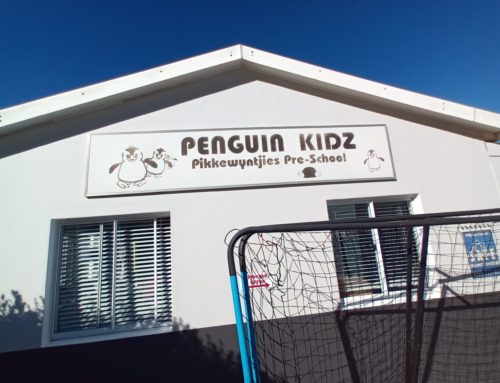So yesterday’s post looking at Parenting Ideas from non-parents generated a lot of healthy conversation. i had a few more people share some more ideas and while me sharing them is not an endorsement to all of the ideas [this is honestly meant to be some input to reflect on, consider, see if there is any good worth holding on to] there are some things here that i really think are helpful. And so parentals, if you see something worth taking please do and if there is something you feel is not helpful feel free to let it fall to the ground. But i think there might be some really helpful ideas over here and thank you to everyone who shared them.
Susan Gray:
1) You’re doing a good job
2) It takes a village to raise a child – create a safe community for your children to learn and grow
3) Use non parents who have skills that you don’t have to engage with your kids so their worldview is expanded
4) Don’t be upset if us non parents offer our help, we are not judging you, just championing you and your tribe
5) Celebrate your children well
6) Don’t presume that you know it all. Parenting is really hard, and as hard as it may be, some of us non parents have wisdom to give ( or just a glass of wine at the end of a hard day)
Sammi Taylor:
Not sure if anyone has mentioned it to you but the one thing I’d like to say to all parents on social media is protect your child and think about what you’re posting about them when it comes to pics of babies, kids, and even teenagers. Those special moment you want to share with the world are sometimes best left in your camera roll. Those photos are on the web out there for everyone to judge and your child may not thank you for it later when they are job hunting or applying for college not to mention not everyone on Facebook is your friend or has the best intentions. Keep some things private.
[She later sent me this really helpful link which gives you some of the reasoning behind 8 types of Kid photos you should never post on social media]
Sikhander Coopoo:
“First, Do No Harm”. Of critical importance is the comma as it forces one to pause and think before acting.
Parents have a duty and responsibility to help their children ‘unlearn’ all the horrible stuff they taught their children. We not born racists, sexists and homophobes. We are taught to become these, just like we are taught to become kind and loving human beings.
Don’t blame society, peer pressure, media etc… it all starts in the home. The good and the bad!
More Leah Rudman:
I will say one LAST thing:
As someone who doesn’t have kids (and is happy about that) I will say the greatest joy has been being invited by people I love to be a part of their child’s world.
(1) They ask my opinion (because even though I’m not a parent, I’m invited family and my opinion counts) that makes me feel valued and my opinion helps them,gives them different perspectives.
(2) The parents are secure enough to let me be there through the joys (seeing them walk for the first time) and the pains (when they go through a miscarriage) that makes me feel valued, and makes them feel supported.
(3) The parents legit feel like they can handle this because they have all these aunties and uncles backing them so when they feel like they are going to have a meltdown because they feel overwhelmed (and parents that is NORMAL) guess what? Aunty Leah steps in and says – get out of here, see a movie, have a wine and don’t come back till Iv put the little ones to sleep. This makes me feel helpful and gives them a break.
(4) Watching a mum and a dad love their child with passion and commitment is beautiful – what’s even better is seeing 5 people (the invited aunties and uncles) that are all THAT dedicated to that child.
(5) In my relationship with these children as “Aunty Leah” I get to reinforce the values of what the parents want to teach them. That makes me feel like I’m supporting the parents, and it helps build a community of good values and morals.
More Brad Kurth:
While reading this, I got to thinking how much valuable input teachers have on the subject. They have a much better idea of what is “normal” behaviour and loads of experience on what works and what doesn’t.
I was thinking:
a) They have been trained in areas such as developmental psychology and behaviour.
b) They have dealt with thousands of kids, so they have loads of experience. Unlike parents who are doing it for the first time.
c) They have (and know how to use) resources that parents may not have.
So the idea of parents and teachers working together [as expressed so well in Leah’s words i think] is an encouraging one if there is space and time for that to be a reality. Obviously it is not always as ideal as one might hope.
So there you have it – a whole range of different ideas and concerns and encouragements and challenges and i hope that if even just one thing sparked then this feels like a worthwhile activity.
Next week i am hopefully going to be running some posts where parents of children share some of their ideas to other parents and hopefully give some tips/advice/precautions/encouragements which i am very much looking forward to. If you are a parent and think you have a post to add, drop me an email at brettfish@hotmail.com







This is SO great!!!!! Us parents, who have no idea WHAT we are doing most of the time and are just making it up as we go along, REALLY need EVERY SINGLE person who would be willing to give us advice and pour wisdom and love into the lives of our kids. I value every single bit of input from every single person! It is just the best to see other people also loving your child. It’s often even better than them loving you!
And so we need you, even when act otherwise. Sorry for the times we are a bit prickly – sometimes we get overwhelmed by the task of raising a human being; sorry for the times we talk too much about our kiddies – we totally don’t think it is as boring as it actually is; and sorry for the times we get a bit self-absorbed – i could blame that on the overwhelmedness-factor again, but i’m gonna just say we’re sometimes just selfish (and normally really tired!)
Thanks for all this great advice. I have learnt a lot! And thanks for the times when you tell us we’re doing a good job. Sometimes that is all we need to hear.
You are great! i would imagine ‘every single bit of input’ is a little bit of an exaggeration though or maybe you just know the right people – i have seen a lot of horrible stuff done/said in the interests of ‘helping parents’ and so i totally get why being defensive happens a lot of the time. But yay for being open and inviting and celebrating together. Thanks for this!